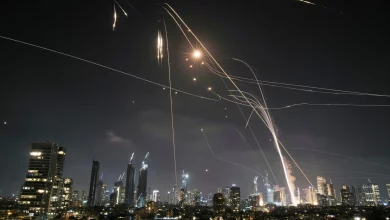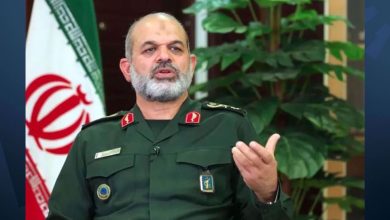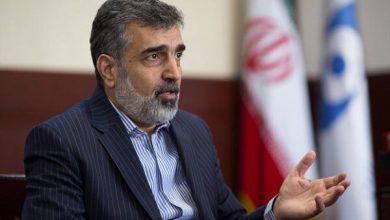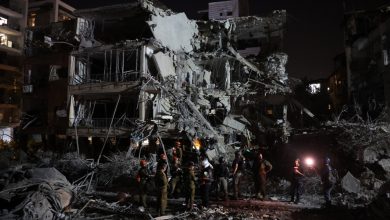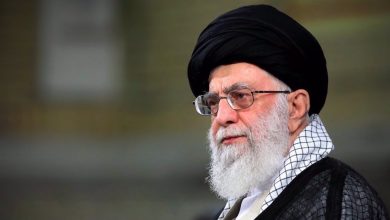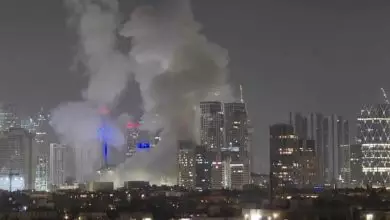TEN DAYS: Iran witnesses widespread demonstrations on the 46th anniversary of the Islamic Revolution
Since early this morning, millions have taken part in rallies across Iran, spanning over 1,400 cities and towns, as well as upwards of 35,000 villages.
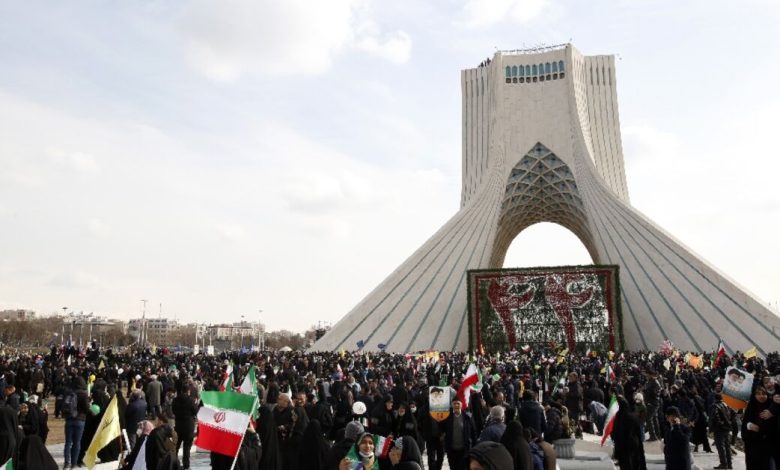
This morning, nationwide rallies have commenced across all provinces of Iran, including the capital, Tehran, in observance of the 45th anniversary of the Islamic Revolution’s triumph.
According to Al Mayadeen’s correspondent in Tehran, large crowds of Iranians gathered in fields and public squares throughout the country to mark the anniversary.
Since the early hours of the day, rallies have drawn millions of participants across over 1,400 cities and towns, as well as in excess of 35,000 villages.
The Iranian Ministry of Foreign Affairs has called upon the nation’s citizens to partake in the February 10 demonstrations, highlighting the importance of national unity. The ministry reiterated its dedication to the core tenets of the revolution—independence, freedom, human dignity, and the resistance against foreign influence.
The Iranian Ministry has reaffirmed its dedication to pursuing “dignified negotiations and smart engagement” as integral components of its foreign policy strategy. In a recent statement, the ministry emphasized that although Iran is open to constructive dialogue, it remains steadfast in its determination to respond decisively to any external threats, ambitions, or pressures that may jeopardize its sovereignty or national interests.
The statement asserted that the Zionist entity’s ambitions and United States’ breaches of international laws and resolutions are being confronted with unprecedented intensity.
Tehran has emphasized that its diplomatic representatives have consistently shown dedication to principled negotiation and strategic collaboration with parties that acknowledge Iran’s legitimate interests, viewing dialogue as a sensible approach to securing mutual advantages. The statement cautioned, however, that these diplomats are prepared to resolutely oppose any efforts to impose unilateral demands through threats, coercion, or intimidation.
The statement highlighted the pivotal role of Iranian citizens as the foundation of the country’s resilience. It emphasized that, bolstered by public backing, the Islamic Republic has successfully navigated significant obstacles over the past 46 years. These challenges have included an imposed war, terrorism, acts of sabotage, illegal foreign intervention, unjust sanctions, and various political and economic pressures.
The commander of the Aerospace Force of Iran’s Islamic Revolution Guard Corps (IRGC), Brigadier General Amir Ali Hajizadeh, addressed former US President Donald Trump’s threats toward Tehran. He remarked that Trump has historically tested Iran’s resolve and is aware that Iran, recognized as a formidable nation, does not succumb to intimidation.
In an official statement to Al Mayadeen, Hajizadeh asserted that adversaries are unable to undertake any reckless actions against them, declaring their continued resilience and strength.
On Monday, Khalil al-Hayya, a leading figure in the Hamas movement in the Gaza Strip, issued a powerful declaration regarding Operation Al Aqsa Flood. He described the operation as an initial step toward the liberation of Palestine, aiming to bring an end to hostilities and terminate the occupation.
During a commemoration marking the 46th anniversary of the Islamic Revolution in Iran, a spokesperson, Al-Hayya, spoke from Tehran, emphasizing Iran’s enduring support for the Palestinian cause. Al-Hayya expressed strong confidence that this support would continue unabated.
He further highlighted Iran’s unwavering backing of Gaza as crucial, stressing the necessity for Israel to cease its “bullying” strategies.
The leader of Hamas has categorically dismissed recent remarks made by U.S. President Donald Trump and Israeli Prime Minister Benjamin Netanyahu regarding the forced displacement of Gaza’s residents. The Hamas official emphasized the unwavering resolve of the Palestinian people, stating they will never relinquish their homeland.
A senior Palestinian official has declared that the strategies formulated by Western countries, including the United States and former President Donald Trump, for the Gaza Strip were destined to fail.
He stated, “We will dismantle them just as we have successfully dismantled prior projects.”
Former President Donald Trump announced on Sunday his dedication to acquiring and possessing the Gaza Strip, expressing openness to the possibility of permitting other Middle Eastern nations to engage in reconstruction efforts within certain areas of the Palestinian territory.
In a recent statement, Al-Hayya conveyed appreciation for the backing from Lebanon, Yemen, Iraq, and Iran, highlighting the solidarity born from shared sacrifices and the unifying symbolism of martyrdom. He emphasized the cohesion of the Palestinian people in their ongoing fight and vowed that they would remember those nations that have supported their cause. Al-Hayya also pledged that there would be no forgiveness for those who have forsaken their struggle.
The 1979 Iranian Revolution, also referred to as the Islamic Revolution in Iran, marked a pivotal moment in the country’s history, leading to the toppling of the Pahlavi dynasty and the formation of the Islamic Republic of Iran. This movement was both a major political and social shift, reshaping the nation’s governance and ideology.
Prior to the revolutionary upheaval, Iran was under the leadership of Shah Mohammad Reza Pahlavi, who ascended to power in 1941. His governance was marked by an authoritarian regime, bolstered by a formidable military presence, and a strategic alliance with Western nations, notably the United States.
The regime of the Shah was characterized by its strict political repression, which encompassed measures such as censorship, surveillance, and the incarceration of political adversaries.
Despite Iran’s substantial revenue from oil exports, a significant portion of the population has increasingly felt marginalized from the economic advantages. The disparity in wealth between the nation’s elite and its citizens has expanded, fueling widespread discontent. In particular, rural regions have been plagued by poverty and a lack of development.
The revolution drew significant influence from Imam Ruhollah Khomeini, a prominent cleric who was exiled by the Shah due to his outspoken opposition and criticism of the regime’s corruption and its close relations with Western powers.
In 1978, significant protests erupted against the regime of the Shah. By January 1979, amidst escalating demonstrations and dwindling support for his government, the Shah departed Iran to seek medical treatment. His exit created a power vacuum swiftly occupied by Khomeini and his followers.
On February 1, 1979, Imam Khomeini made a historic return to Iran following 14 years in exile, where he was met with a triumphant reception. This significant event heralded the onset of the establishment of the Islamic Republic.

